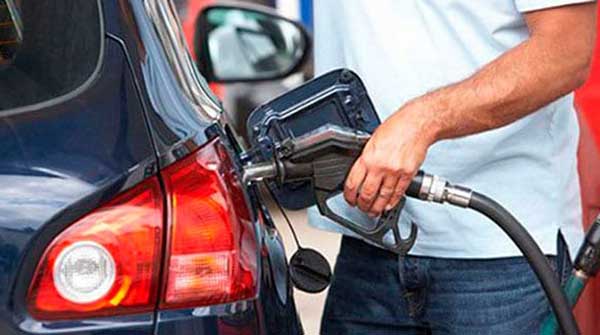Why the Manitoba gas tax cut needs to be permanent
 Good news!
Good news!
(For now.)
On Jan. 1, Manitoba Premier Wab Kinew cut the 14 cent per litre provincial fuel tax for gasoline and diesel.
However, Kinew has only committed to keeping the cut around for six months. The provincial government needs to keep these savings around for the long haul.
Because it’s already saving drivers money.
At the end of December, gas in Winnipeg averaged $1.30 per litre. Now, it’s priced at $1.15 per litre.
Compare that to Manitoba’s western counterparts. In Regina, gas is about $1.30 per litre; in Victoria, it’s $1.67; and in Edmonton, it’s $1.19.
The government’s official numbers say the average two-car family will be saving about $250 over six months, but that underestimates what many Manitobans can expect to save.
Think of a two-car family who fills up a sedan once a week and a minivan every two weeks by driving to work and taking the kids to hockey practice in the evening. That Manitoba family will save at least $342 over the course of the six-month cut. If you drive a truck or have a longer commute, you’ll save even more.
But doesn’t this tax cut only help people who can afford cars? While it’s true not everyone drives, the cost of driving still affects everyone.
With the fuel tax cut, a trucker who drives a big rig and hauls all the goods you want to the stores you buy them in is saving about $63 per fill-up. That makes it cheaper to haul those goods and can mean cheaper prices for you.
Canada Post charges you more to ship a package depending on the price of diesel. Ride-share apps have introduced fuel surcharges in the past when gas prices were increasing.
Keeping fuel prices low means savings for everyone. With the Trudeau government planning to jack up its carbon tax at the pumps every year until 2030, Kinew needs to do everything he can to keep fuel as affordable as possible.
The carbon tax currently costs 14 cents per litre of gasoline, the exact amount offset by the provincial gas tax cut. But come April, that cost jumps to 18 cents per litre. By 2030, it will be 37 cents per litre and cost the average Manitoba household $1,490 per year, according to the Parliamentary Budget Officer. That cost is net, with the rebates included.
While Kinew’s gas tax cut won’t fully offset the cost of the carbon tax, it sure will help.
Kinew knows the carbon tax makes life more unaffordable. He is standing with most of the country’s premiers and asking the feds for a carbon tax carve out on home heating. The same logic can be applied to gasoline and diesel. The premier must shield Manitobans from the cost of the carbon tax.
Manitoba taxpayers can’t take these savings for granted. The gas tax cut is scheduled to end in June. But it’s a good bet that life won’t suddenly be more affordable in six months, and families won’t need the extra $342 in their pockets. This gas tax cut needs to stay for good.
Alberta had a fluctuating fuel tax cut for two years and because of that, the lowest fuel prices in the country. But the Alberta government just partially hiked its fuel taxes back up on Jan. 1. This is stealing away savings from Albertans looking for any way to make life more affordable.
Manitobans can’t let their gas tax cut get away.
Getting the gas tax relief is a great first step to making life more affordable, but now it’s time to make sure that the cut is here to stay.
Gage Haubrich is the Prairie Director for the Canadian Taxpayers Federation.
For interview requests, click here.
The opinions expressed by our columnists and contributors are theirs alone and do not inherently or expressly reflect the views of our publication.
© Troy Media
Troy Media is an editorial content provider to media outlets and its own hosted community news outlets across Canada.


